CMU Artificial Intelligence Experts Brief Policymakers
By Amanda S.F. Hartle, Michael Henninger and Peter Kerwin
Carnegie Mellon University has been at the epicenter of artificial intelligence since creating the first AI computer program in 1956. As that pioneering work continues today in directions such as autonomous vehicles and natural language processing, CMU experts are advancing the leading edge of technology that is impacting every corner of society.
Throughout the summer and fall, CMU faculty and leaders conducted AI policy briefings with state, national and international decision-makers on fast-paced changes in the field and to provide insight on its fair use and benefits to society. They led conversations in Washington, D.C. and New York City with key federal agencies, U.S. Congressional committees and the 78th United Nations General Assembly.
Here are highlights of those briefings.
Accelerating Sustainability
College of Engineering Dean Bill Sanders and Carnegie Mellon University in Africa student Choukouriyah Arinloye participated in a briefing at the United Nations hosted by U.S. Secretary of State Antony Blinken and attended by foreign ministers, policymakers, researchers and industry leaders.
The event focused on AI’s potential to accelerate progress of the UN’s Sustainable Development Goals, including applications focused on health, education, food security, energy and climate action.
Sanders and Arinloye, who is pursuing her master’s degree in information technology, shared how faculty, students and researchers at CMU-Africa’s campus in Kigali, Rwanda, are building a digital future for the continent through AI education and research partnerships.
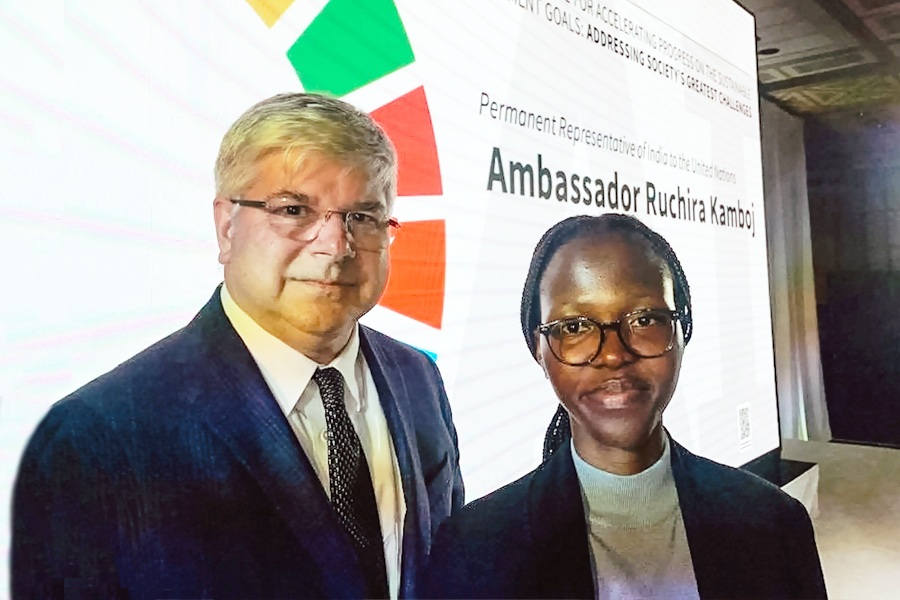
Ensuring Transparency
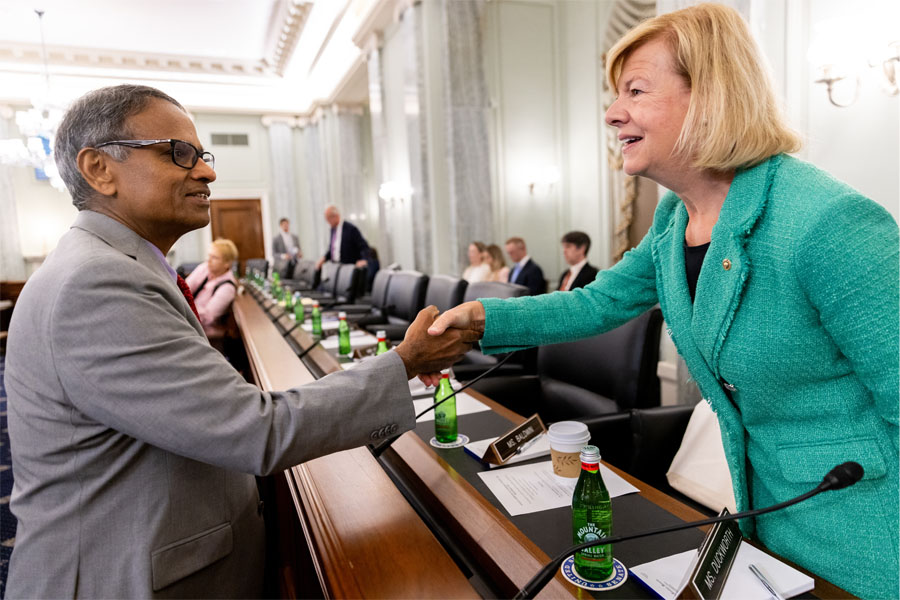
Ramayya Krishnan, dean of Heinz College of Information Systems and Public Policy and founding faculty director of the Block Center for Technology and Society, appeared before the U.S. Senate Committee on Commerce, Science and Transportation Subcommittee on Consumer Protection, Product Safety and Data Security.
The hearing explored how to increase transparency in AI technologies for consumers; identified uses of AI that are beneficial or “high-risk”; and evaluated the potential impact of policies designed to increase trustworthiness in the transformational technology.
Krishnan proposed four recommendations that could provide imminent impact on the trusted adoption of AI that, when combined with a focused research program, will ensure U.S. leadership in a responsible, transparent way.
Tackling Humanity’s Critical Problems
Rayid Ghani, Distinguished Career Professor at Heinz College of Information Systems and Public Policy and the School of Computer Science’s Machine Learning Department, testified during the U.S. Senate Homeland Security and Governmental Affairs Committee hearing titled “Governing AI Through Acquisition and Procurement.”
During his testimony, Ghani put forward recommendations for how governments can procure and use AI systems to advance a more equitable society.
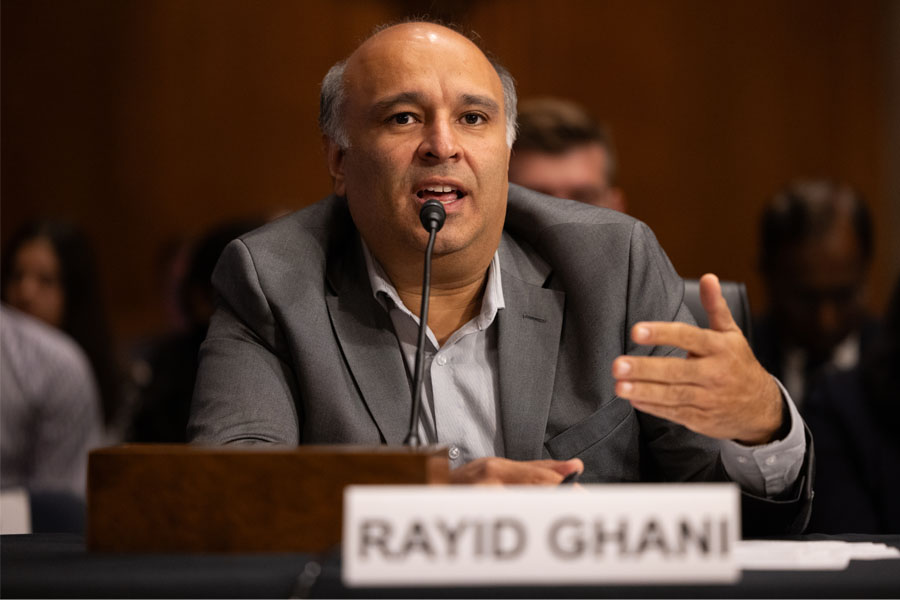
Fostering Support and Collaboration
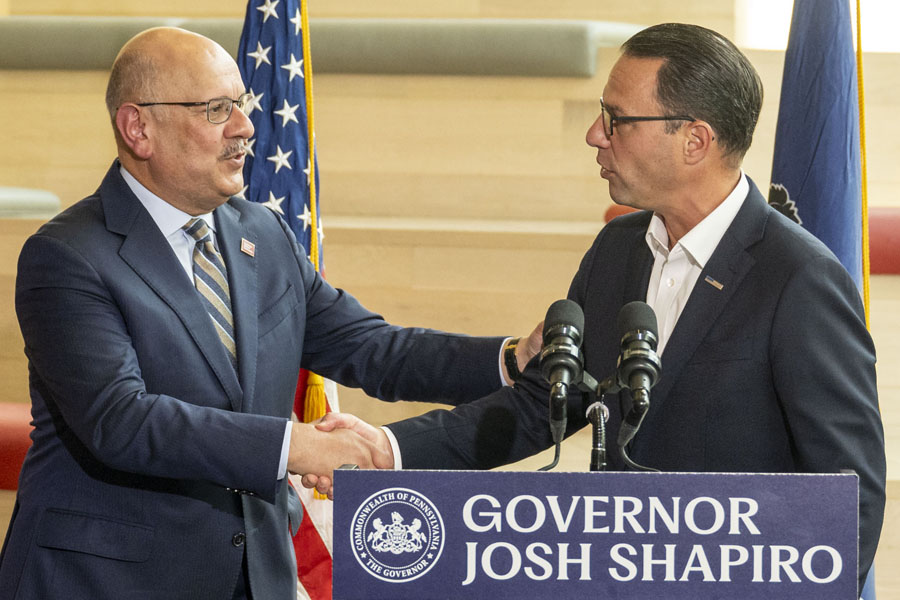
CMU President Farnam Jahanian welcomed Pennsylvania Gov. Josh Shapiro to the university’s Pittsburgh campus to sign an executive order establishing responsible standards and a governance framework for generative AI use by commonwealth agencies. The executive order will ensure the commonwealth is using the technology in a way that benefits all Pennsylvanians — from helping improve public health services to creating meaningful employment opportunities.
The event also marked a new collaborative agreement between the Shapiro administration and CMU dedicated to promoting the responsible use of AI tools. The administration will partner with the Block Center for Technology and Society to create opportunities for the commonwealth to leverage faculty expertise and receive advisory support for the Generative AI Governance Board, created by the order, as well as foster additional research support and collaboration on generative AI usage.
Managing Risk
Carnegie Mellon’s Responsible AI Initiative worked closely with the National Institute of Standards and Technology to host a workshop with the goal of operationalizing the NIST AI Risk Management Framework.
Organizers included Ghani; Jodi Forlizzi, the Herbert A. Simon Professor in Computer Science and Human-Computer Interaction in the School of Computer Science; and Hoda Heidari, the K&L Gates Career Development Assistant Professor in Ethics and Computational Technologies in the School of Computer Science.
The result of a broad collaboration between public and private sectors, the framework provides guidelines to better manage the potential risks of AI systems at all levels of society. Its voluntary use can help integrate trustworthiness into AI by considering how systems are designed, developed, used and evaluated.
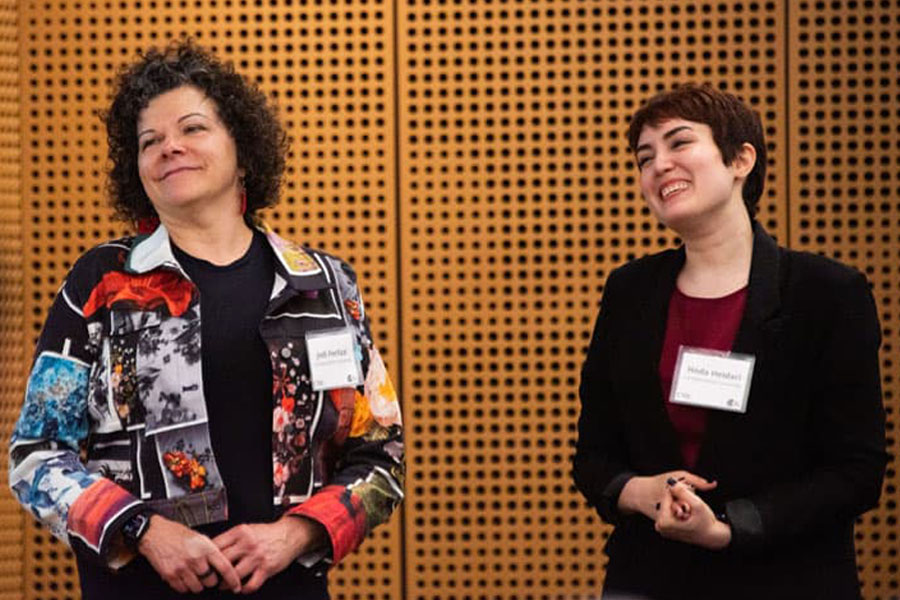
Jodi Forlizzi (left) and Hoda Heidari
Developing Tools for Societal Challenges
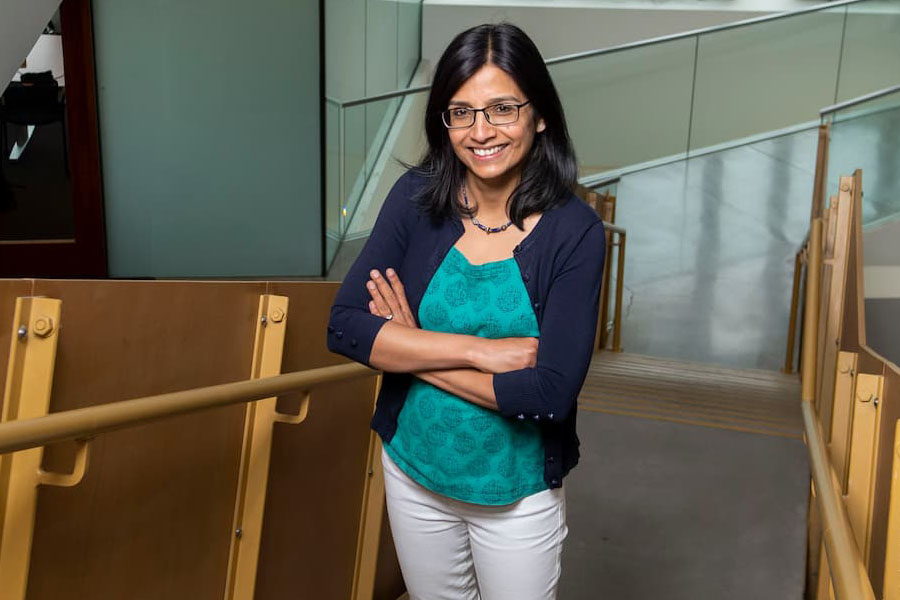
The School of Computer Science’s Aarti Singh, professor in the Machine Learning Department and director of the National Science Foundation AI Institute for Societal Decision Making, met with members of Congress and their staffs as part of the National AI Research Institutes Congressional Showcase.
The showcase allows the institute, along with 24 additional NSF AI institutes across the country, to highlight their research, accomplishments and programs.
The institute is working to improve the response to societal challenges such as disaster management and public health by creating human-centric AI tools to assist with critical decisions and developing interdisciplinary training to bolster effective and rapid response in uncertain and dynamic situations.

